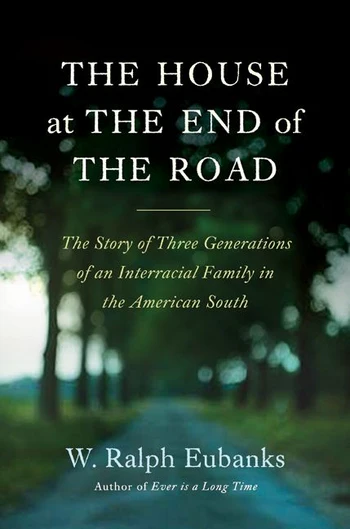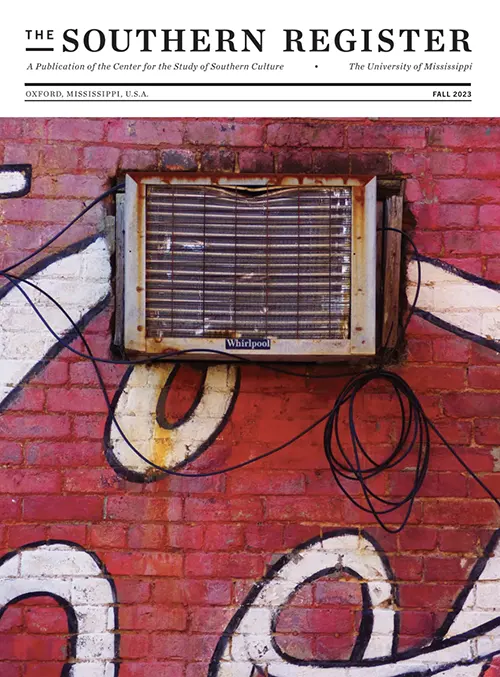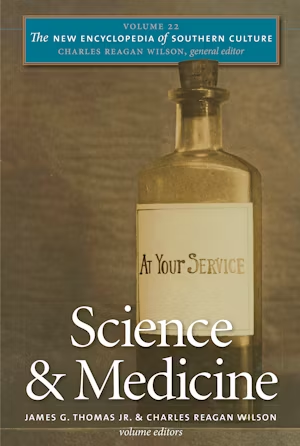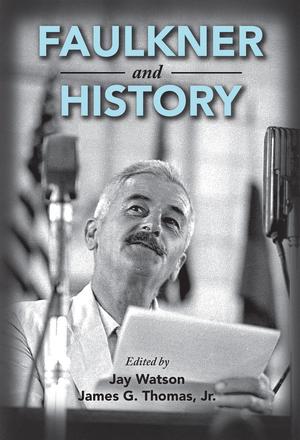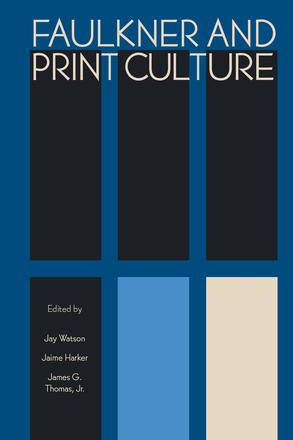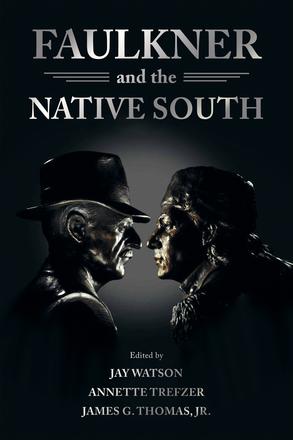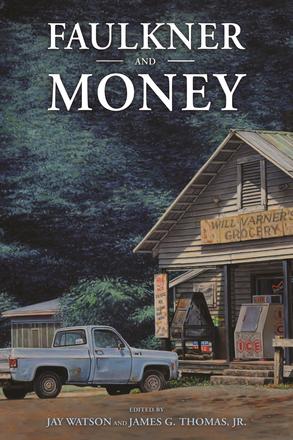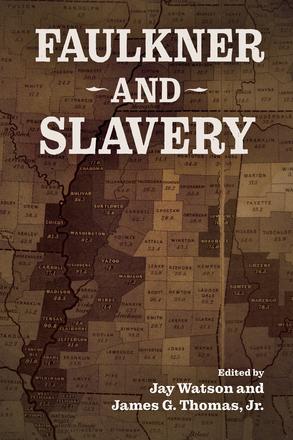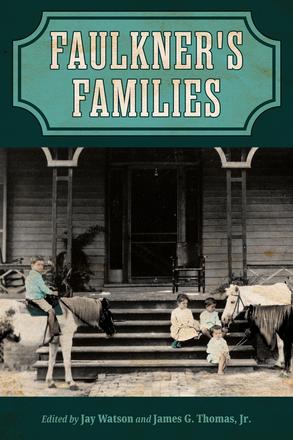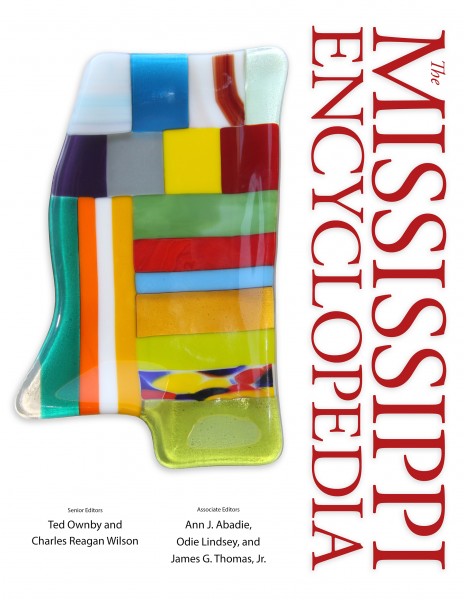The Center for the Study of Southern Culture Publications
A legacy of cultural insight and innovation
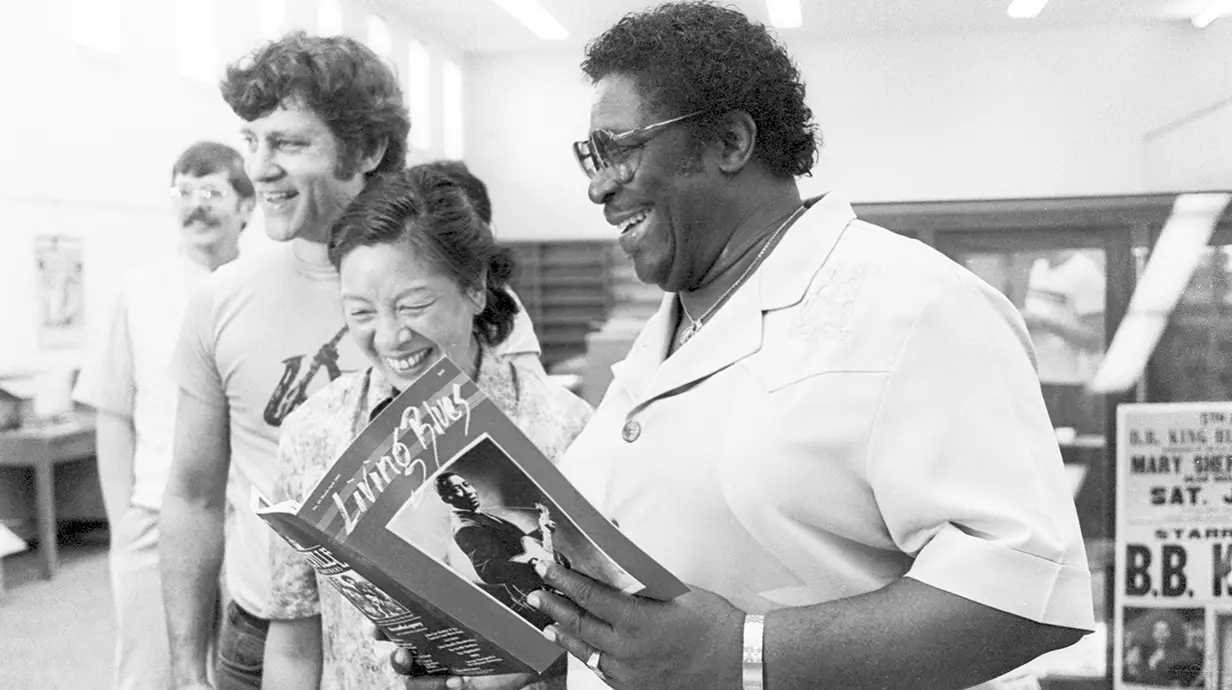
Exploring the South Through Scholarship
The Center for the Study of Southern Culture has a long tradition of producing written scholarship on a vast variety of subjects within numerous disciplines and in a wide number of formats. Among the most celebrated are the original Encyclopedia of Southern Culture and the 24-volume New Encyclopedia of Southern Culture series.
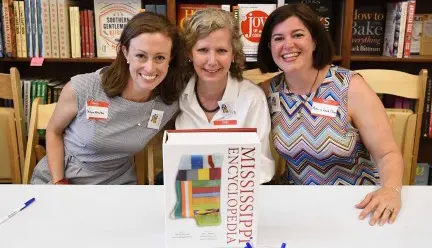
Center faculty continually produce new scholarship in their respective fields, Living Blues was founded as America’s first blues publication and has since set the standard for blues journalism around the world, and the Center’s newsletter, published three times a year, the Southern Register, provides readers with Center-related news and updates on a variety of topics.
The Southern Register
The Center’s newsletter for Center friends, The Southern Register, is published three times a year and provides readers with Center-related news and updates.
Study the South
-
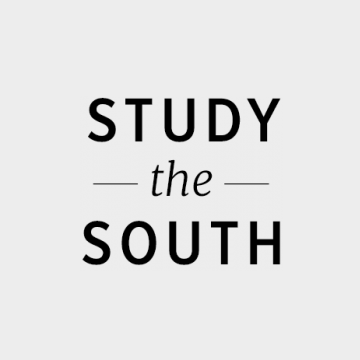
Study the South is a peer-reviewed, multimedia, online journal
Published, managed, and founded in 2014 by the Center for the Study of Southern Culture, Study the South exists to encourage interdisciplinary academic thought and discourse on the American South, particularly through the lenses of history, anthropology, sociology, music, literature, documentary studies, gender studies, religion, geography, media studies, race studies, ethnicity, folklife, and visual art.
View the Journal About/Subscribe Submissions Contact
The Mississippi Encyclopedia
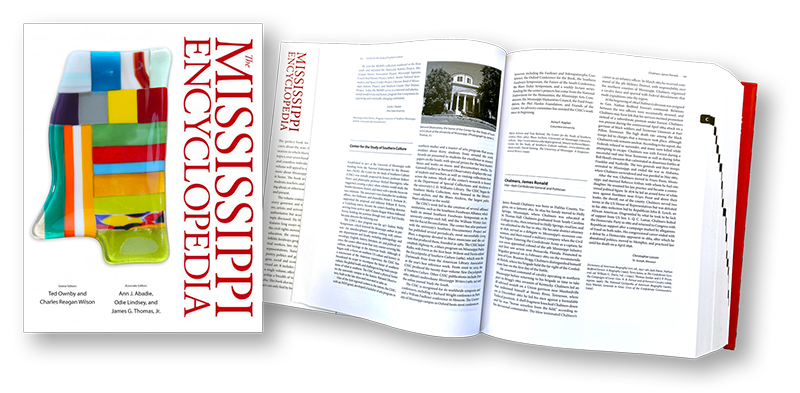
The Mississippi Encyclopedia, a project that began at the Center for the Study of Southern Culture in 2003, was published in print in 2017 and made available online in 2018. The reference book was published by the University Press of Mississippi and later made available online, with support from the Mississippi Humanities Council.
The Mississippi Encyclopedia includes solid, clear information contained in a single volume/website, offering with clarity and scholarship a breadth of topics unavailable anywhere else, with entries on every county, every governor, and numerous musicians, writers, artists, and activists. It is the first encyclopedic treatment of the state since 1907.
The Mississippi Encyclopedia appeals to anyone who wants to know more about the state. It has proven to be especially helpful to students, teachers, and scholars researching, writing about, or otherwise discovering the state, past and present.
The book won a Mississippi Institute of Arts and Letters Award, and awards of merit from the Mississippi Historical Society and the Mississippi Heritage Trust.
The Mississippi Encyclopedia is the successful result of numerous collaborations—between the University Press of Mississippi, the Mississippi Humanities Council, and the Center for the Southern Culture, among the numerous supporters who contributed to or helped organize the project, among the thirty topic editors from around the state and far beyond it, and among the authors, an intriguing mixture of scholars. The Mississippi Department of Archives and History helped a great deal, and the University of Mississippi Department of History and School of Law joined the Southern Studies program in encouraging advanced students to write for the project. Early support came from the University of Mississippi and the National Endowment for the Humanities.
Each entry in The Mississippi Encyclopedia provides an authoritative but accessible introduction to the topic discussed. It also features long essays on agriculture, archaeology, architecture, the civil rights movement, the Civil War, contemporary issues, drama, education, the environment, ethnicity, fiction, folklife, foodways, gender, geography, industry and industrial workers, law, science and medicine, music, myths and representations, American Indians, nonfiction, poetry, politics and government, the press, religion, social and economic history, sports, and visual art.
The online version is updated regularly, and several entries are added each year.
The New Encyclopedia of Southern Culture
Since the publication of the Encyclopedia of Southern Culture in 1989, the Center for the Study of Southern Culture has shaped and defined the field of Southern Studies. With the 24-volume New Encyclopedia of Southern Culture, the Center continues to be a leader in the field of Southern scholarship.
Living Blues
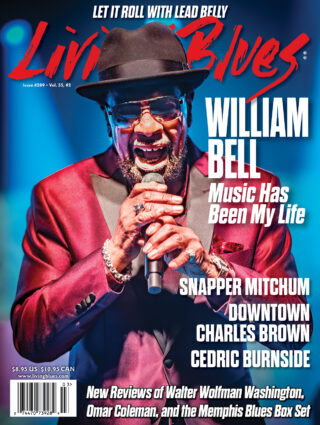 Living Blues magazine, America’s first blues publication, was founded in Chicago in 1970 by Jim O’Neal and Amy van Singel. From its inception, the magazine has aimed to document and preserve the African American blues tradition. Living Blues was acquired by the University of Mississippi in 1983 and is published bimonthly by the Center for the Study of Southern Culture. Living Blues shares the Center’s mission to promote scholarship and documentary work. Center graduate students frequently serve as interns and contributors for the magazine.
Living Blues magazine, America’s first blues publication, was founded in Chicago in 1970 by Jim O’Neal and Amy van Singel. From its inception, the magazine has aimed to document and preserve the African American blues tradition. Living Blues was acquired by the University of Mississippi in 1983 and is published bimonthly by the Center for the Study of Southern Culture. Living Blues shares the Center’s mission to promote scholarship and documentary work. Center graduate students frequently serve as interns and contributors for the magazine.
With in-depth features on blues icons like Howlin’ Wolf, Muddy Waters, and B.B. King, as well as more obscure artists and rising stars, Living Blues has provided the best in blues journalism and photography for over forty years. Each issue of Living Blues features current Blues News, “Breaking Out” articles on up and coming artists, and the most extensive CD and DVD review section in the business. The Living Blues Radio Charts provide the music industry with the most accurate compilations of playlists from blues radio programmers throughout the world.
Additionally, since 2003, Living Blues has sponsored the Blues Today Symposium each spring on the University of Mississippi campus. The Symposium has featured such keynote speakers as Paul Oliver, Samuel Charters, and Bill Ferris as well as intimate musical performances by Honeyboy Edwards, Little Milton, and B.B. King.
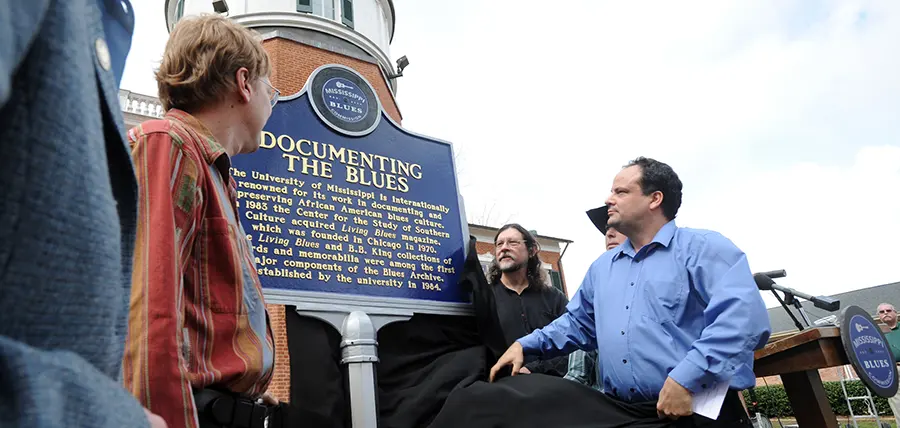
In 2009, Living Blues was honored by the state of Mississippi with a Mississippi Blues Trail historical marker. Living Blues is also a past recipient of the Blues Foundation’s prestigious Keeping the Blues Alive Award.
Book Series
Volumes in the Faulkner & Yoknapatawpha Series include papers presented during the annual Faulkner & Yoknapatawpha Conference held on the University of Mississippi campus since 1976.
Visit the University Press of Mississippi site to learn more about the series.
Faculty Publications
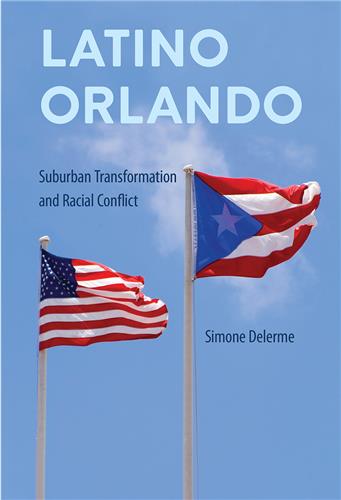
Latino Orlando
Suburban Transformation and Racial Conflict
From the publisher
Latino Orlando portrays the experiences of first- and second-generation immigrants who have come to the Orlando metropolitan area from Puerto Rico, Cuba, Mexico, Venezuela, Colombia, and other Latin American countries. While much research on immigration focuses on urban destinations, Simone Delerme delves into a middle- and upper-class suburban context, highlighting the profound demographic and cultural transformation of an overlooked immigrant hub.
More about Simone Delerme
From the publisher:
A powerful story about race and identity told through the lives of one American family across three generations
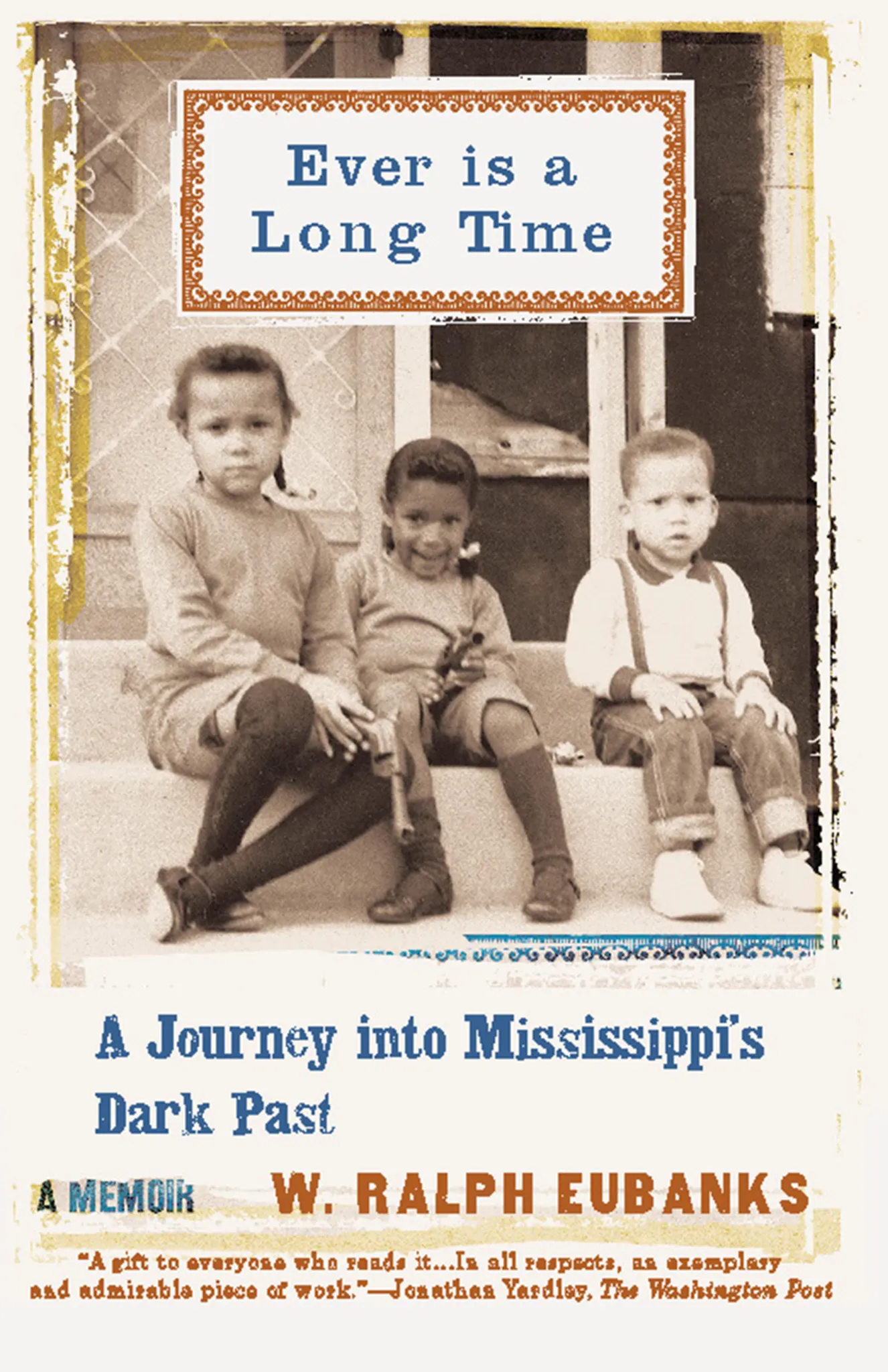
Ever Is a Long Time
A Journey Into Mississippi's Dark Past A Memoir
From the publisher:
Like the renowned classics Praying for Sheetrock and North Toward Home, Ever Is a Long Time captures the spirit and feel of a small Southern town divided by racism and violence in the midst of the Civil Rights era.
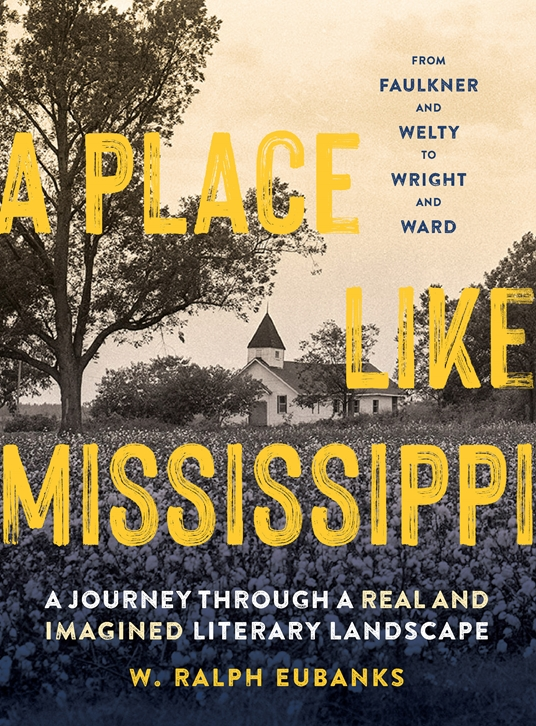
A Place Like Mississippi: A Journey through a Real and Imagined Literary Landscape
From the publisher:
The South has produced some of America’s most celebrated authors, and no state more so than Mississippi. Names as diverse as Faulkner, Welty, and Ward have created a literary legacy spanning decades and stretching across lines of class, gender, and race. One thing binds together these wide- ranging perspectives—the land itself. In A Place Like Mississippi, W. Ralph Eubanks explores those ties and the ways in which the Magnolia State has fostered such a bounty of expression.
More about Ralph Eubanks
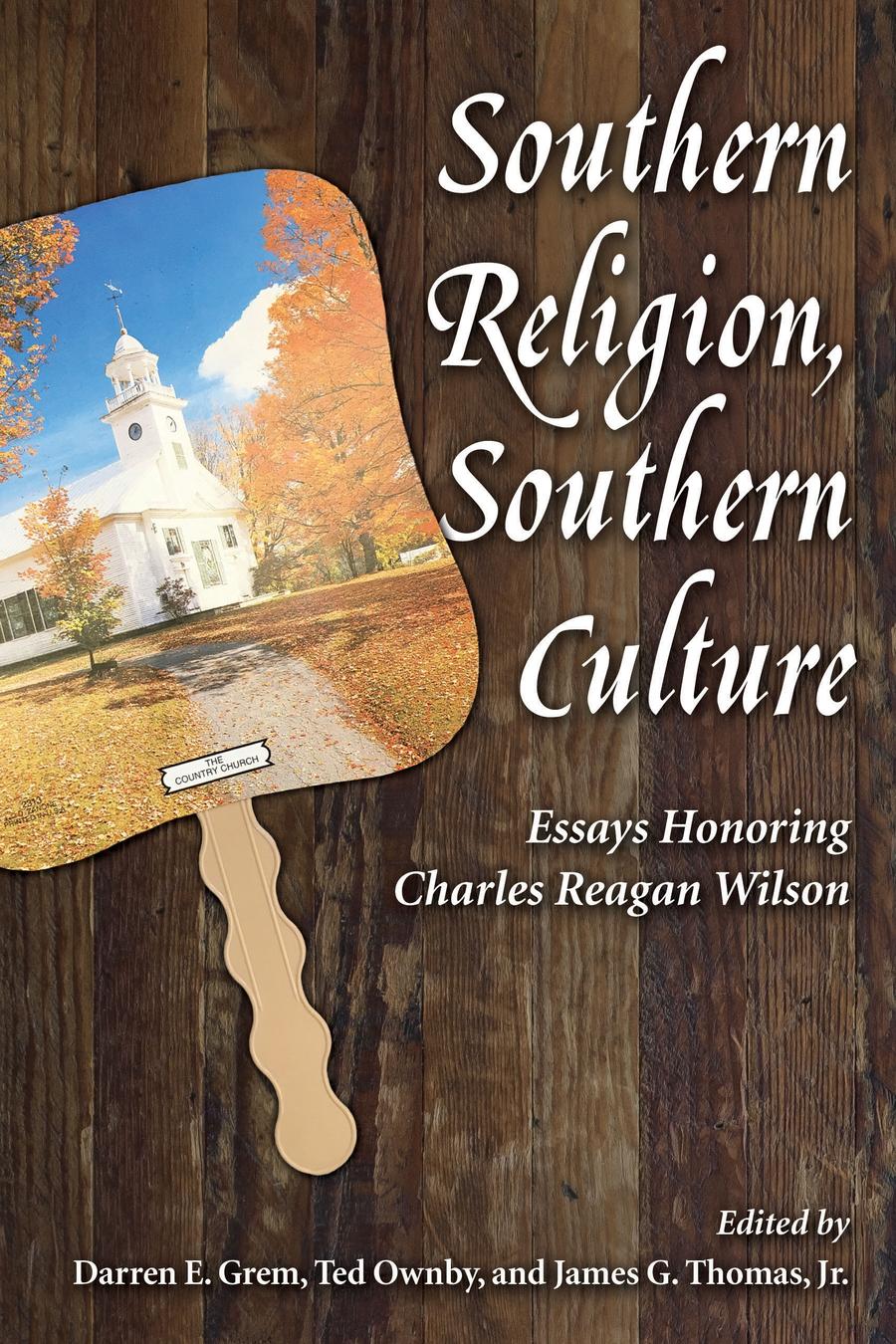
Southern Religion, Southern Culture
Essays: Honoring Charles Reagan Wilson
From the publisher:
From the steeple to the stable to the goal posts and dinner table, a homily on southern religiosity
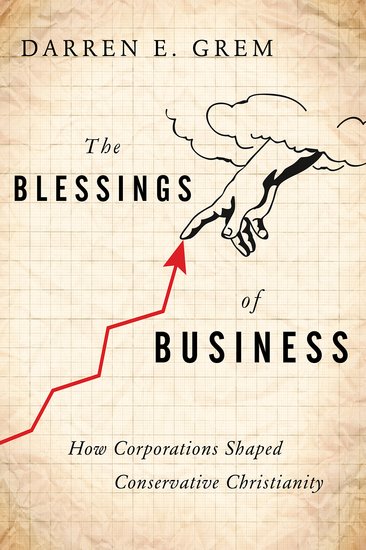
The Blessings of Business
How Corporations Shaped Conservative Christianity
From the publisher:
The Book of Matthew cautions readers that "Ye cannot serve God and mammon." But for at least a century conservative American Protestants have been trying to prove that adage wrong. In The Blessings of Business, Darren E. Grem argues that while preachers, activists, and politicians have all helped spread the gospel, American evangelicalism owes its enduring strength in a large part to private enterprise.
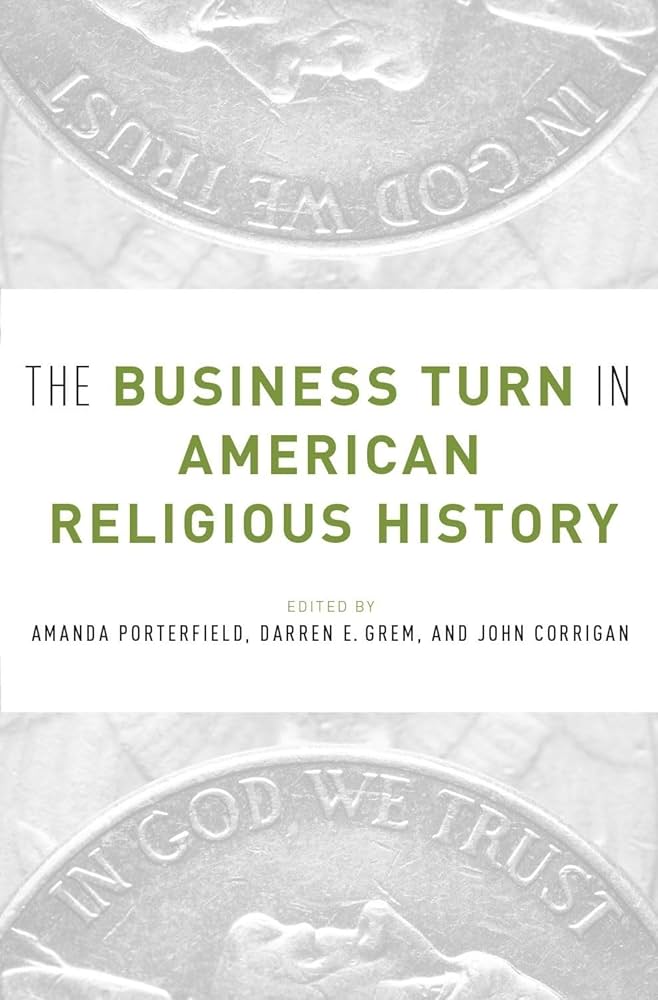
The Business Turn in American Religious History
From the publisher:
- A holistic treatment of the influence of American business practice on religion
- Examines business in relation to a diverse spread of religions in America
- Offers a wide variety of essays on different aspects of business practices surrounding religious discourse
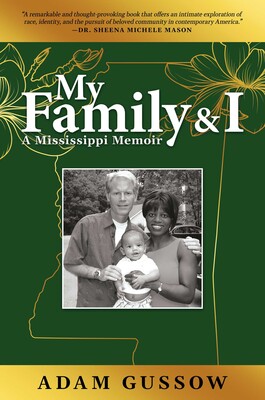
My Family and I: A Mississippi Memoir
From the publisher
An inspiring memoir about the author’s lifelong quest for racial reconciliation, the love that sustains his interracial family in contemporary Mississippi, and the “Yes we can!” hope for American renewal that fades after the deaths of Trayvon Martin, Michael Brown, and the despair-driven rise of Black Lives Matter.
Adam Gussow shares his experience with the prison-to-college pipeline program.
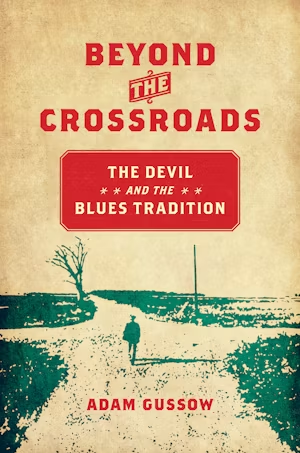
Beyond the Crossroads: The Devil and the Blues Tradition
From the publisher:
The devil is the most charismatic and important figure in the blues tradition. He's not just the music's namesake ("the devil's music"), but a shadowy presence who haunts an imagined Mississippi crossroads where, it is claimed, Delta bluesman Robert Johnson traded away his soul in exchange for extraordinary prowess on the guitar. Yet, as scholar and musician Adam Gussow argues, there is much more to the story of the devil and the blues than these clichéd understandings.
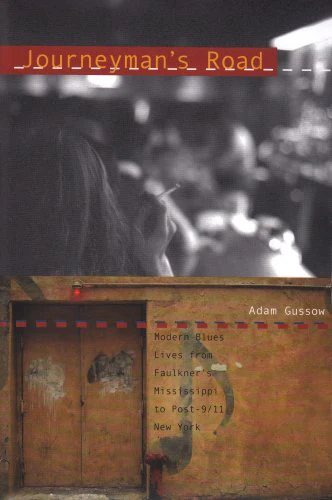
Journeyman’s Road: Modern Blues Lives from Faulkner’s Mississippi to Post-9/11 New York
From the Google Books:
Journeyman's Road offers a bold new vision of where the blues have been in the course of the twentieth century and what they have become at the dawn of the new millennium: a world music rippling with postmodern contradictions. Author Adam Gussow brings a unique perspective to this exploration. Not just an award-winning scholar and memoirist, he is an accomplished blues harmonica player, a Handy award nominee and veteran of the international club and festival circuit. With this unusual depth of experience, Gussow skillfully places blues literature in dialogue with the music that provokes it, vibrantly articulating a vital American tradition.
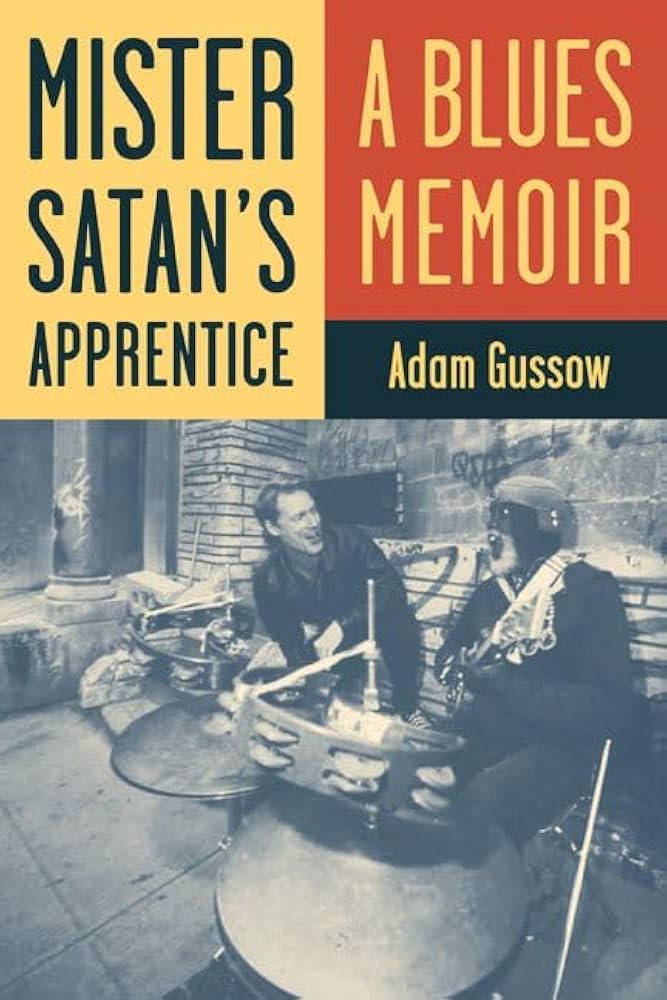
Mister Satan’s Apprentice: A Blues Memoir
From Goodreads:
Mister Satan’s Apprentice is the history of one of music’s most fascinating collaborations, between Adam Gussow, a young graduate school dropout and harmonica player, and Sterling “Mr. Satan” Magee, a guitarist and underground blues legend who had originally made his name as “Five Fingers Magee.”
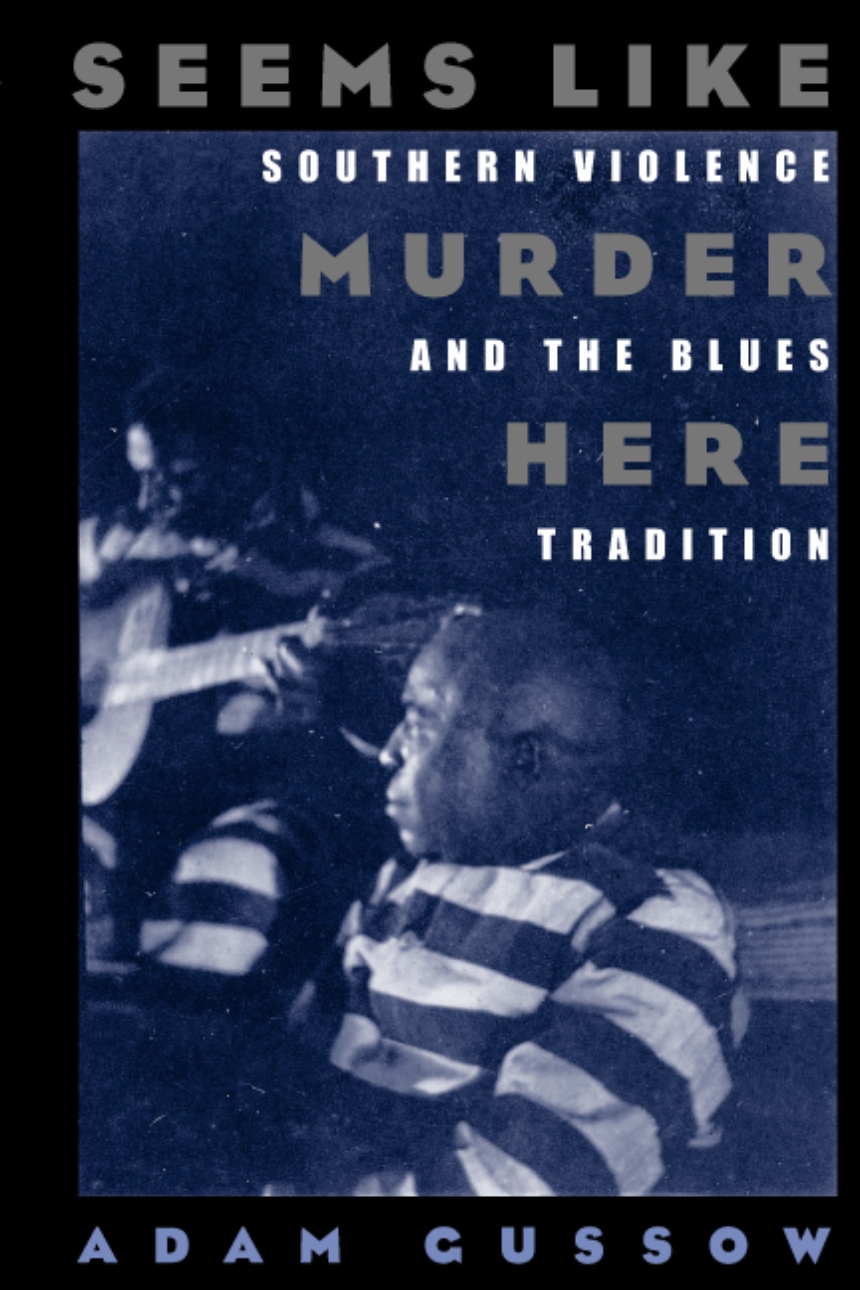
Seems Like Murder Here: Southern Violence and the Blues Tradition
From the publisher:
Seems Like Murder Here offers a revealing new account of the blues tradition. Far from mere laments about lost loves and hard times, the blues emerge in this provocative study as vital responses to spectacle lynchings and the violent realities of African American life in the Jim Crow South. With brilliant interpretations of both classic songs and literary works, from the autobiographies of W. C. Handy, David Honeyboy Edwards, and B. B. King to the poetry of Langston Hughes and the novels of Zora Neale Hurston, Seems Like Murder Here will transform our understanding of the blues and its enduring power.
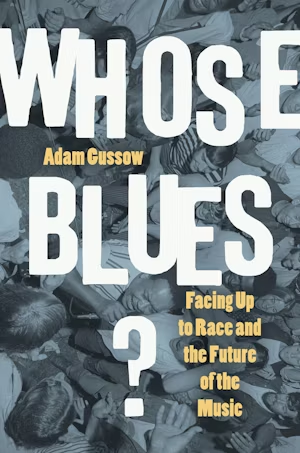 Whose Blues? Facing Up to Race and the Future of the Music
Whose Blues? Facing Up to Race and the Future of the Music
From the publisher:
Mamie Smith’s pathbreaking 1920 recording of "Crazy Blues" set the pop music world on fire, inaugurating a new African American market for "race records." Not long after, such records also brought black blues performance to an expanding international audience. A century later, the mainstream blues world has transformed into a multicultural and transnational melting pot, taking the music far beyond the black southern world of its origins. But not everybody is happy about that. If there's "No black. No white. Just the blues," as one familiar meme suggests, why do some blues people hear such pronouncements as an aggressive attempt at cultural appropriation and an erasure of traumatic histories that lie deep in the heart of the music? Then again, if "blues is black music," as some performers and critics insist, what should we make of the vibrant global blues scene, with its all-comers mix of nationalities and ethnicities?
In Whose Blues?, award-winning blues scholar and performer Adam Gussow confronts these challenging questions head-on. Using blues literature and history as a cultural anchor, Gussow defines, interprets, and makes sense of the blues for the new millennium. Drawing on the blues tradition’s major writers including W. C. Handy, Langston Hughes, Zora Neale Hurston, and Amiri Baraka, and grounded in his first-person knowledge of the blues performance scene, Gussow’s thought-provoking book kickstarts a long overdue conversation.
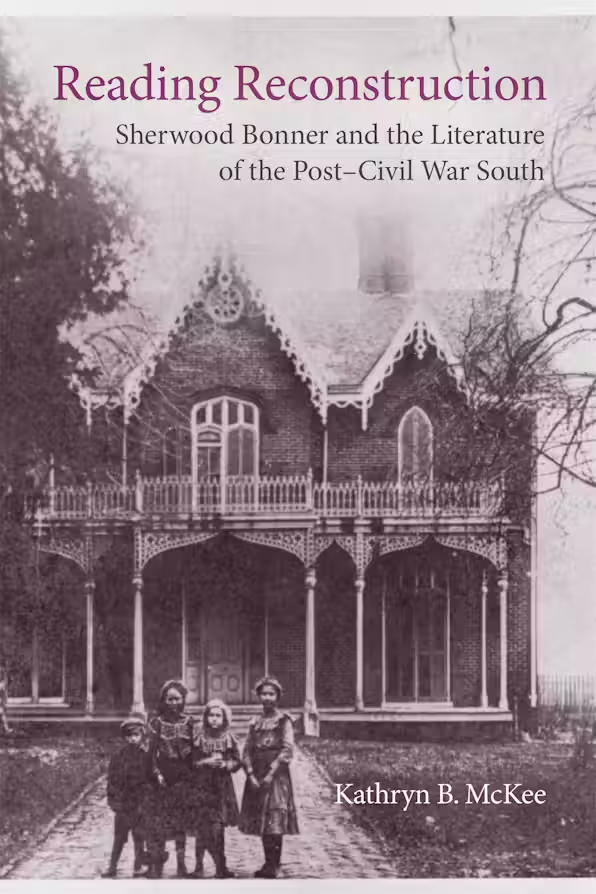
Reading Reconstruction: Sherwood Bonner and the Literature of the Post-Civil War South
From the publisher:
Kathryn B. McKee’s Reading Reconstruction situates Mississippi writer Katharine Sherwood Bonner McDowell (1849–1883) as an astute cultural observer throughout the 1870s and 1880s who portrayed the discord and uneasiness of the Reconstruction era in her fiction and nonfiction works. McKee reveals conflicts in Bonner’s writing as her newfound feminism clashes with her resurgent racism, two forces widely prevalent and persistently oppositional throughout the late nineteenth century
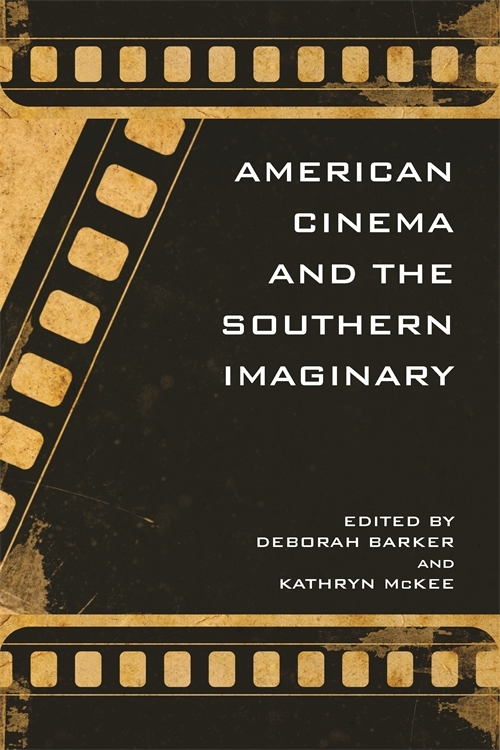
American Cinema and the Southern Imaginary
From the publisher:
Employing innovations in media studies, southern cultural studies, and approaches to the global South, this collection of essays examines aspects of the southern imaginary in American cinema and offers fresh insight into the evolving field of southern film studies.
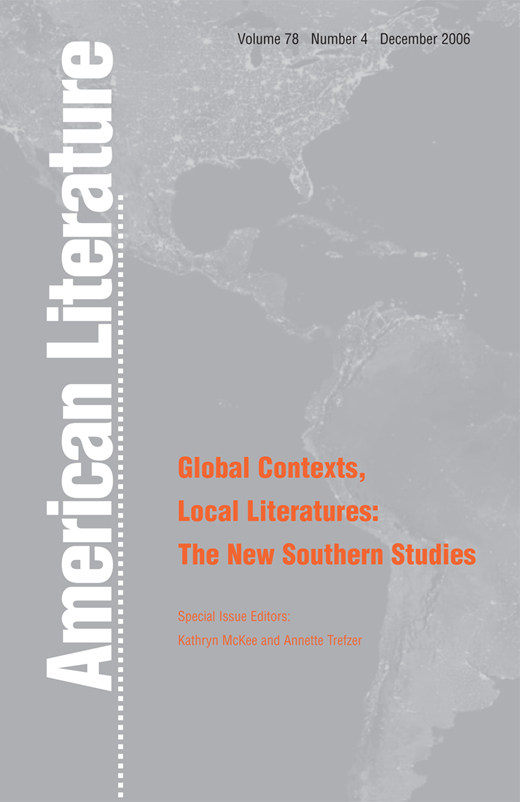
Global Contexts, Local Literatures: The New Southern Studies
From the publisher:
American Literature has been regarded since its inception as the preeminent periodical in its field. Each issue contains articles covering the works of several American authors—from colonial to contemporary.
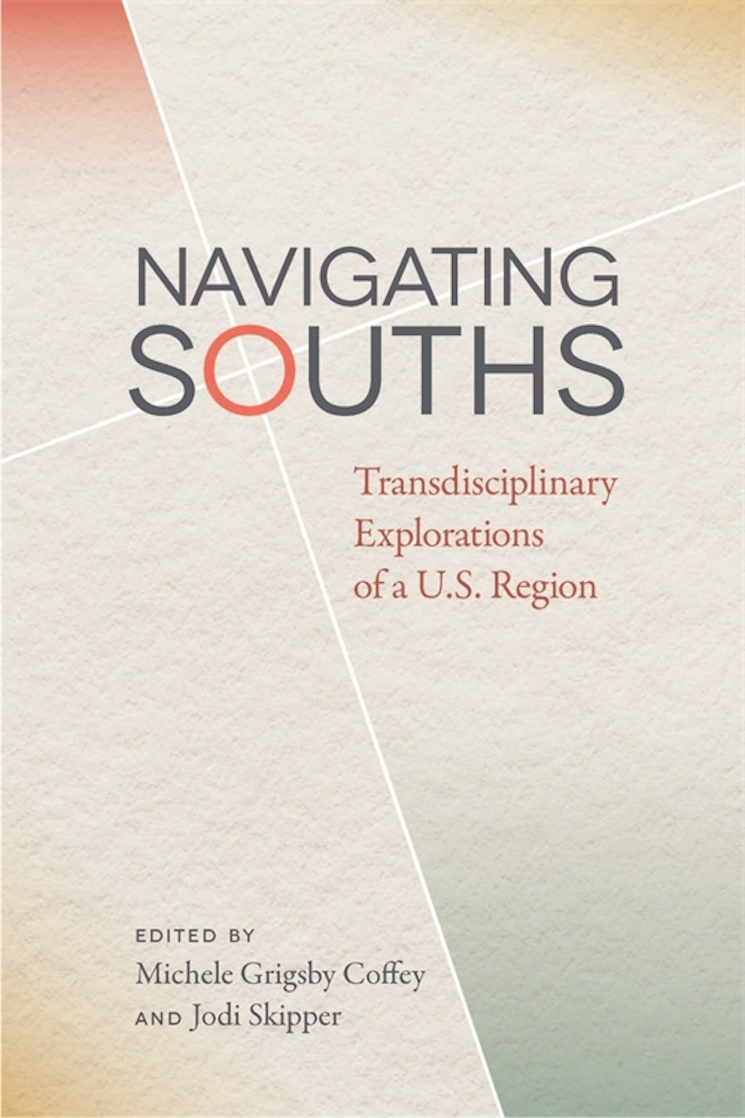
Navigating Souths
From the publisher
The work of considering, imagining, and theorizing the U.S. South in regional, national, and global contexts is an intellectual project that has been going on for some time. Scholars in history, literature, and other disciplines have developed an advanced understanding of the historical, social, and cultural forces that have helped to shape the U.S. South. However, most of the debates on these subjects have taken place within specific academic disciplines, with few attempts to cross-engage.
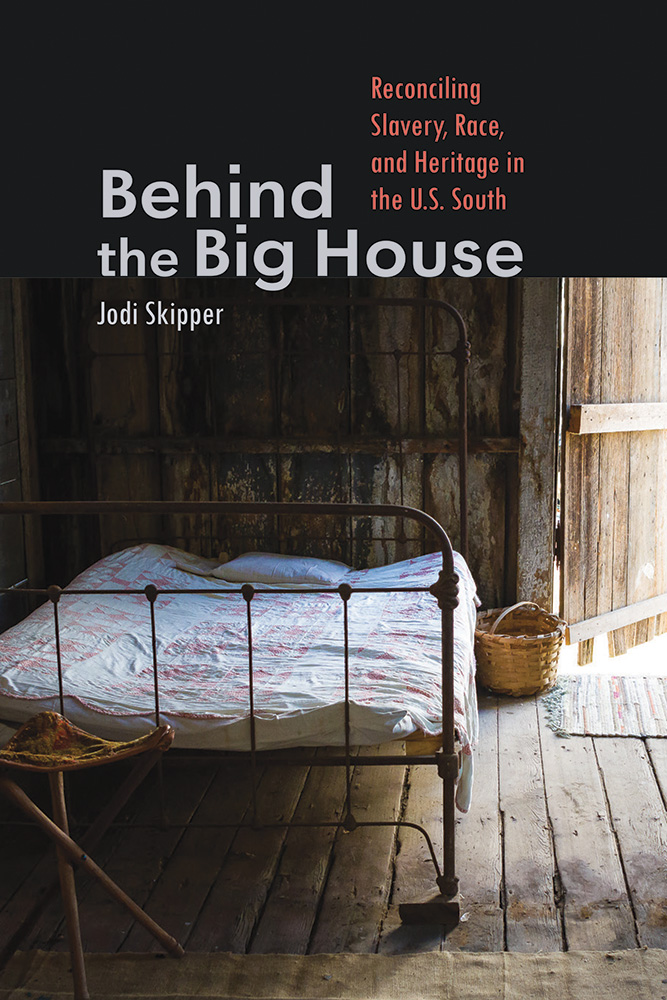
When residents and tourists visit sites of slavery, whose stories are told? All too often the lives of slave owners are centered, obscuring the lives of enslaved people. Behind the Big House gives readers a candid, behind-the-scenes look at what it really takes to interpret the difficult history of slavery in the U.S. South. The book explores Jodi Skipper’s eight-year collaboration with the Behind the Big House program, a community-based model used at local historic sites to address slavery in the collective narrative of U.S. history and culture.
From the publisher:
Science and medicine have been critical to southern history and the formation of southern culture. For three centuries, scientists in the South have documented the lush natural world around them and set a lasting tradition of inquiry. The medical history of the region, however, has been at times tragic. Disease, death, and generations of poor health have been the legacy of slavery, the plantation economy, rural life, and poorly planned cities. The essays in this volume explore this legacy as well as recent developments in technology, research, and medicine in the South.
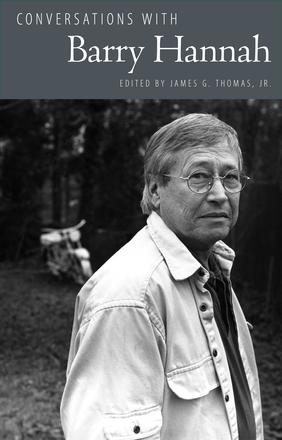
Conversations with Barry Hannah
From the publisher:
Thirty years of interviews with one of the most important modern American writers, who is often praised for his unflinching use of language, rich metaphors, and tragically damaged characters.
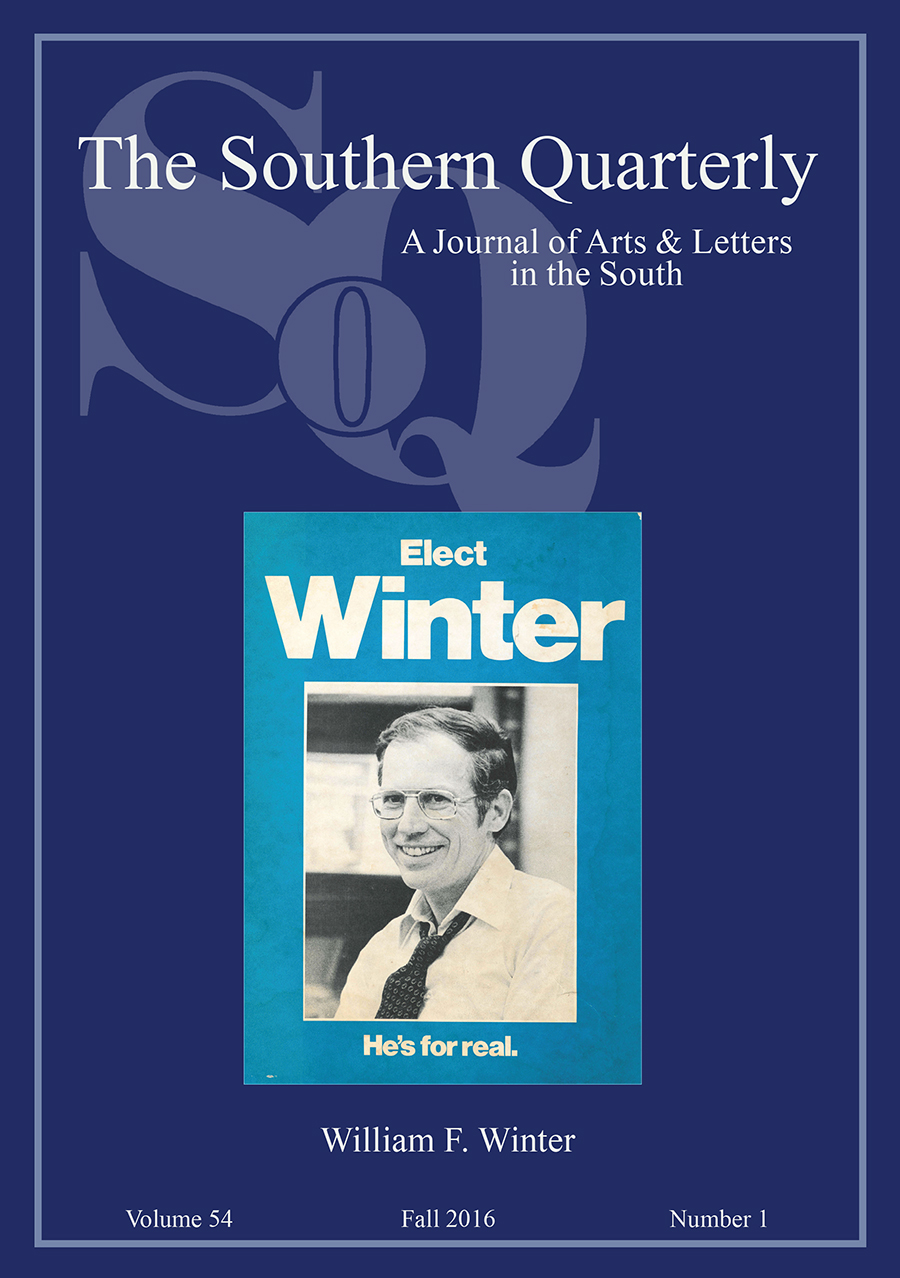
The Southern Quarterly - Special Issue on Governor William Winter
This issue considers the life, accomplishments, and legacy of Governor Winter.
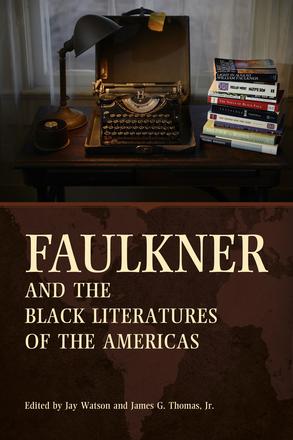
Faulkner and the Black Literatures of the Americas
From the publisher:
The dynamic interplay between the work of the Nobel laureate and Black writers.
From the publisher:
A stimulating treatment of the intersection between history and literature in the Nobel Laureate's work.
From the publisher:
A fascinating survey of Faulkner's publishing history with periodicals and publishing houses.
From the publisher:
An exploration of the Nobel laureate's engagement with Native Americans and the ways in which Native American writing illuminates Faulkner.
From the publisher:
A thorough assay of the Nobel Laureate through the lens of lucre.
From the publisher:
A long-awaited assessment of the Nobel laureate's work in relation to America's cosmic sin.
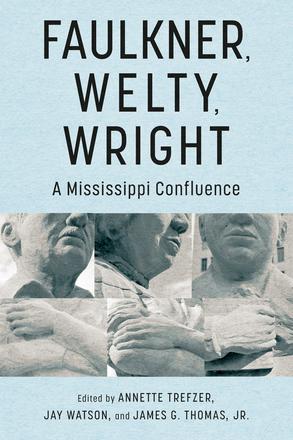
Faulkner, Welty, Wright
A Mississippi Confluence
From the publisher:
An engaging, diverse collection that considers together a trio of Mississippi literary giants.
From the publisher:
A new and fascinating volume that explores the theme of family in the works by the great Mississippi writer.
From the publisher:
An A-to-Z compendium of people, places, and events in Mississippi from prehistoric times to today.

Southern Religion, Southern Culture:
Essays Honoring Charles Reagan Wilson
From the publisher:
From the steeple to the stable to the goal posts and dinner table, a homily on southern religiosity.

